Related Research Articles

Judith Blume is an American writer of children's, young adult, and adult fiction. Blume began writing in 1959 and has published more than 26 novels. Among her best-known works are Are You There God? It's Me, Margaret. (1970), Tales of a Fourth Grade Nothing (1972), Deenie (1973), and Blubber (1974). Blume's books have significantly contributed to children's and young adult literature. She was named one of the 100 most influential people in the world by Time magazine in 2023.

The Comic Book Legal Defense Fund (CBLDF) is an American non-profit organization formed in 1986 to protect the First Amendment rights of comics creators, publishers, and retailers covering legal expenses. Charles Brownstein served as the organization's executive director from 2002 until his resignation in 2020.
The American Booksellers Association (ABA) is a non-profit trade association founded in 1900 that promotes independent bookstores in the United States. ABA's core members are key participants in their communities' local economy and culture, and to assist them ABA creates relevant programs; provides education, information, business products, and services; and engages in public policy and industry advocacy. The Association actively supports and defends free speech and the First Amendment rights of all Americans, without contradiction of equity and inclusion, through the American Booksellers for Free Expression. A volunteer board of 13 booksellers governs the Association. Previously headquartered in White Plains, New York, ABA became a fully remote organization in 2024.

PEN America, founded in 1922, and headquartered in New York City, is a nonprofit organization whose goal is to raise awareness for the protection of free expression in the United States and worldwide through the advancement of literature and human rights. PEN America is the largest of the more than 100 PEN centers worldwide that together compose PEN International. PEN America has offices in New York City, Los Angeles, Washington, D.C., and since late 2023 also in Florida.
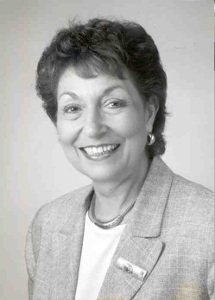
Judith Fingeret Krug was an American librarian, freedom of speech proponent, and critic of censorship. Krug became director of the Office for Intellectual Freedom at the American Library Association in 1967. In 1969, she joined the Freedom to Read Foundation as its executive director. Krug co-founded Banned Books Week in 1982.

The National Coalition Against Censorship (NCAC), founded in 1974, is an alliance of 50 American non-profit organizations, including literary, artistic, religious, educational, professional, labor, and civil liberties groups. NCAC is a New York–based organization with official 501(c)(3) status in the United States. The coalition seeks to defend freedom of thought, inquiry, and expression from censorship and threats of censorship through education and outreach, and direct advocacy. NCAC assists individuals, community groups, and institutions with strategies and resources for resisting censorship and creating a climate hospitable to free expression. It also encourages the publicizing of cases of censorship and has a place to report instances of censorship on the organization's website. Their annual fundraiser is called the Free Speech Defender Awards. The main goal of the organization is to defend the first amendment, freedom of thought, inquiry, and expression. NCAC's website contains reports of censorship incidents, analysis and discussion of free expression issues, a database of legal cases in the arts, an archive of NCAC's quarterly newsletter, a blog, and Censorpedia, a crowdsourced wiki. In fiscal year 2017, the organization earned a 95.93% rating by Charity Navigator, an organization that assesses the efficacy of nonprofits.

Banned Books Week is an annual awareness campaign promoted by the American Library Association and Amnesty International, that celebrates the freedom to read, draws attention to banned and challenged books, and highlights persecuted individuals. Held in late September or early October since 1982, the United States campaign "stresses the importance of ensuring the availability of those unorthodox or unpopular viewpoints to all who wish to read them" and the requirement to keep material publicly available so that people can develop their own conclusions and opinions. The international campaign notes individuals "persecuted because of the writings that they produce, circulate or read." Some of the events that occur during Banned Book Week are The Virtual Read-Out and The First Amendment Film Festival.
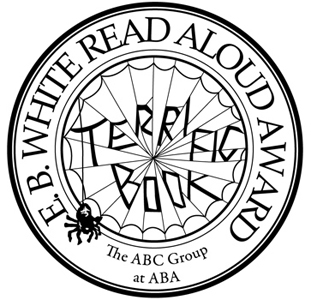
The E. B. White Read Aloud Award was established in 2004 by The Association of Booksellers for Children (ABC) to honor books that its membership felt embodied the universal read aloud standards that were created by the work of the author E. B. White.
The Indies Choice Book Award is an American literary award that was inaugurated at BookExpo America 2000. The American Booksellers Association (ABA) rededicated the award in recognition of a new era in bookselling, as well as the important role the Book Sense Picks List has played for independent booksellers in discovering and spreading the word about books of quality to all stores, and readers, nationwide. Throughout the year, Book Sense independent booksellers from across the country nominate for inclusion in the monthly Book Sense Picks the books that they most enjoyed hand-selling to their customers. The books on each list represent a combined national and local staff pick selection of booksellers' favorites from more than 1,200 independent bookstores with Book Sense.
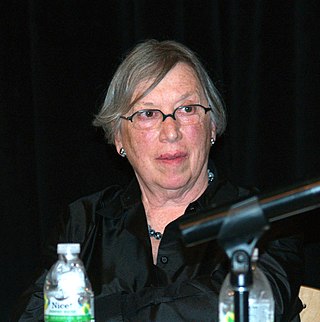
Robie Harris was an American author. She wrote more than 30 children's books, including the frequently challenged It's Perfectly Normal (1994) and It's so Amazing (1999).
Intellectual freedom encompasses the freedom to hold, receive and disseminate ideas without restriction. Viewed as an integral component of a democratic society, intellectual freedom protects an individual's right to access, explore, consider, and express ideas and information as the basis for a self-governing, well-informed citizenry. Intellectual freedom comprises the bedrock for freedoms of expression, speech, and the press and relates to freedoms of information and the right to privacy.
Book censorship is the removal, suppression, or restricted circulation of literary, artistic, or educational material on the grounds that it is objectionable according to the standards applied by the censor. The first instance of book censorship in what is now known as the United States, took place in 1637 in modern-day Quincy, Massachusetts. While specific titles caused bouts of book censorship, with Uncle Tom’s Cabin frequently cited as the first book subject to a national ban, censorship of reading materials and their distribution remained sporadic in the United States until the Comstock Laws in 1873. It was in the early 20th century that book censorship became a more common practice and source of public debate. Throughout the 20th and early 21st centuries there have been waves of attempts at widespread book censorship in the US. Since 2022, the country has seen a dramatic increase of attempted and successful censorship, with a 63% rise in reported cases between 2022 and 2023, including a substantial rise in challenges filed to hundreds of books at a time. In recent years, about three-fourths of books subject to censorship in the US are for children, pre-teenagers, and teenagers.
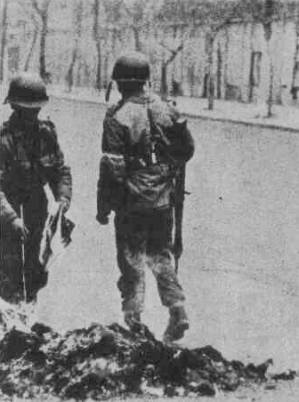
Book censorship is the act of some authority taking measures to suppress ideas and information within a book. Censorship is "the regulation of free speech and other forms of entrenched authority". Censors typically identify as either a concerned parent, community members who react to a text without reading, or local or national organizations. Books have been censored by authoritarian dictatorships to silence dissent, such as the People's Republic of China, Nazi Germany and the Soviet Union. Books are most often censored for age appropriateness, offensive language, sexual content, amongst other reasons. Similarly, religions may issue lists of banned books, such as the historical example of the Roman Catholic Church's Index Librorum Prohibitorum and bans of such books as Salman Rushdie's The Satanic Verses by Ayatollah Khomeini, which do not always carry legal force. Censorship can be enacted at the national or subnational level as well, and can carry legal penalties. In many cases, the authors of these books could face harsh sentences, exile from the country, or even execution.
The censorship of student media in the United States is the suppression of student-run news operations' free speech by school administrative bodies, typically state schools. This consists of schools using their authority to control the funding and distribution of publications, taking down articles, and preventing distribution. Some forms of student media censorship extend to expression not funded by or under the official auspices of the school system or college.
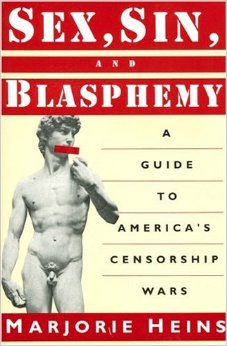
Sex, Sin, and Blasphemy: A Guide to America's Censorship Wars is a non-fiction book by lawyer and civil libertarian Marjorie Heins that is about freedom of speech and the censorship of works of art in the early 1990s by the U.S. government. The book was published in 1993 by The New Press. Heins provides an overview of the history of censorship, including the 1873 Comstock laws, and then moves on to more topical case studies of attempts at suppression of free expression.
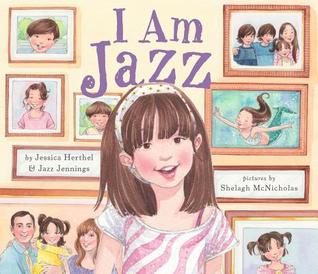
I Am Jazz, published in 2014, was co-written by Jessica Herthel and Jazz Jennings and illustrated by Shelagh McNicholas. It is based on the real-life experiences of Jazz Jennings, a transgender YouTube personality, Human Rights Campaign Youth Ambassador, and the main star of the TLC series I Am Jazz. Jazz was assigned male at birth, but from age two, she struggled with having “a girl brain but a boy body.”
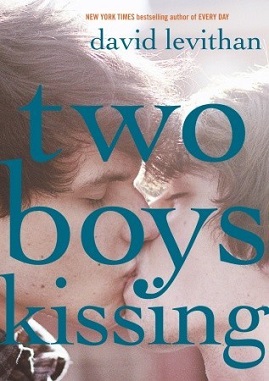
Two Boys Kissing is a 2013 young adult novel written by American author David Levithan. Inspired by true events, the book follows two 17-year-old boys who set out to break a Guinness World Record by kissing for 32 hours. The book includes a "Greek chorus" of the generation of gay men who died of AIDS. Throughout the narrative, the book discusses topics such as relationships, coming out, gender identity, and hook-up culture.
Starting in 2021, there have been a considerable number of books banned or challenged in parts of the United States. Most of the targeted books have to do with race, gender, and sexuality. Unlike most book challenges in the past, whereby parents or other stakeholders in the community would engage teachers and school administrators in a debate over a title, local groups have received support from conservative advocacy organizations working to nationalize the efforts focused on certain subjects. They have also been more likely to involve legal and legislative measures rather than just conversations in local communities. Journalists, academics, librarians, and others commonly link the coordinated, often well-funded book challenges to other reactionary efforts to restrict what students should learn about systemic bias and the history of the United States. Hundreds of books have been challenged, including high-profile examples like Maus by Art Spiegelman and New Kid by Jerry Craft.

Ghost Boys is a 2018 middle-grade novel by Jewell Parker Rhodes. Set in Chicago, the novel follows the story of Jerome, a 12-year-old black boy who is shot and killed by a white police officer before coming back as a ghost. Emmett Till, a black boy who was murdered in 1955, features as another ghost in the text. Rhodes' novel has themes of racism and socio-economic injustice that are aimed at a younger audience.
Arkansas Act 372 was signed by the Arkansas governor on March 31 and is scheduled to go into effect in August 2023. Sections one and five of Arkansas Act 372 expose librarians and booksellers to criminal penalties, which includes up to a year in prison, in the case they distribute materials such as books, magazines, and movies deemed "harmful to minors."
References
- ↑ ABFFE
- ↑ "Free Expression (ABFFE)". the American Booksellers Association. Retrieved 2023-10-25.
- ↑ "ABFFE to Merge With ABA: Free Speech Programming to Expand". Nov 18, 2014.
- ↑ "ABA Promotes David Grogan to Director of ABFE, Advocacy and Public Policy". the American Booksellers Association. 2018-02-05. Retrieved 2023-10-25.
- ↑ "ABFE Director Chris Finan to Leave ABA". the American Booksellers Association. 2017-06-21. Retrieved 2023-10-25.
- ↑ Albanese, Andrew (16 March 2023). "NCAC Executive Director Christopher Finan to Retire". PublishersWeekly.com. Retrieved 2024-02-23.
- ↑ "Restoring Safeguards for Reader Privacy Eliminated by the USAPatriot Act". Archived from the original on 2009-10-01. Retrieved 2009-08-13.
- ↑ Brasch, Walter (2005). America's Unpatriotic Acts: The Federal Government's Violation of Constitutional and Civil Rights. Peter Lang. ISBN 0820476080.
- ↑ "ABFE & Free Speech". the American Booksellers Association. Retrieved 2023-10-25.
- ↑ Price, Gary (2023-07-25). "Lawsuit: Coalition of Local and National Booksellers, Authors and Publishers File Suit to Challenge New Censorship Law and Defend the Right of Free Expression in Texas". Library Journal infoDOCKET. Retrieved 2024-02-23.
- ↑ Howell, Jordan (2024-01-18). "'Good day for free expression' after Fifth Circuit blocks Texas' controversial book rating law | The Foundation for Individual Rights and Expression". www.thefire.org. Retrieved 2024-02-23.
- ↑ Moomaw, Graham (2022-07-06). "Free-speech groups, book world fight back in Virginia obscenity case". Virginia Mercury. Retrieved 2024-02-23.
- ↑ Albanese, Andrew. "Judge Tosses Virginia Obscenity Cases, Declares State Law Unconstitutional". PublishersWeekly.com. Retrieved 2024-02-23.
- ↑ "The Coalition | Banned Books Week" . Retrieved 2024-02-23.
- ↑ "ABFE & Free Speech". the American Booksellers Association. Retrieved 2024-02-23.
- ↑ Borresen, Jennifer (2 October 2023). "Banned Books Week: A visual dive into an alarming increase in attempts to restrict books". USA TODAY. Retrieved 2024-02-23.
- ↑ "Read a banned book". Plaquemine Post South. 2014-08-20. Retrieved 18 September 2014.
- ↑ "Kids' Right to Read Project". National Coalition Against Censorship. 2013-08-30.
- ↑ "ABFE Oppositions Map". the American Booksellers Association. Retrieved 2024-02-23.
- ↑ "Advocacy". the American Booksellers Association. Retrieved 2024-02-23.
- ↑ León, Concepción de; Alter, Alexandra (2020-01-29). "'American Dirt' Publisher Cancels Book Tour". The New York Times. ISSN 0362-4331 . Retrieved 2024-02-23.
- ↑ "The ABA Right to Read Toolkit". the American Booksellers Association. Retrieved 2024-02-23.